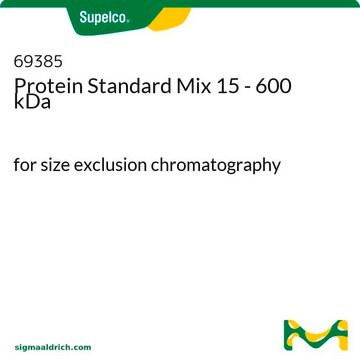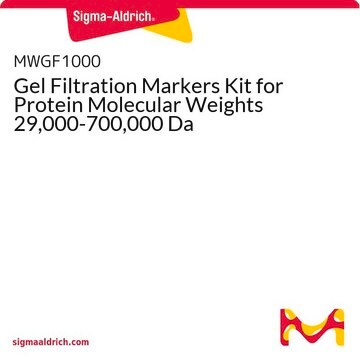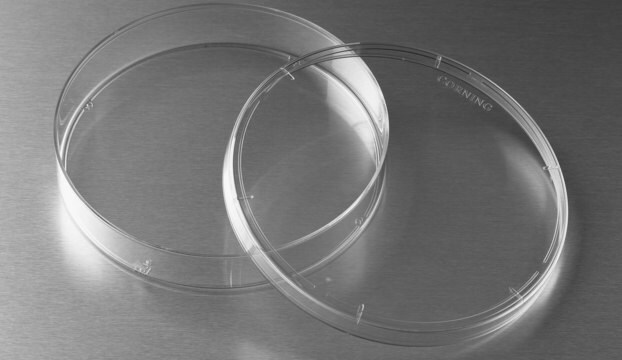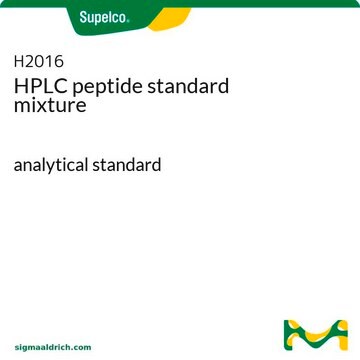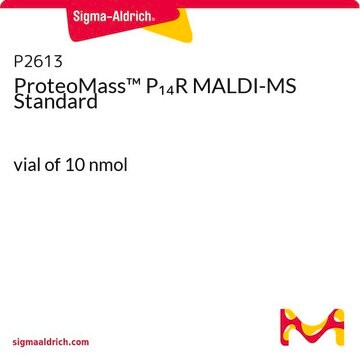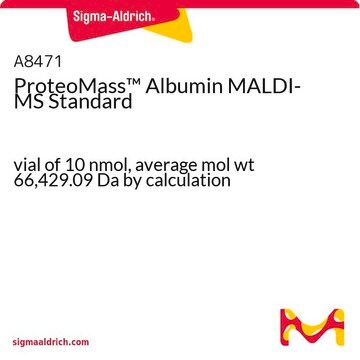추천 제품
생물학적 소스
human
Quality Level
형태
ready-to-use solution
품질
Protein Mass Spectrometry Calibration Standard
농도
10.6 μg/ampule protein
기술
mass spectrometry (MS): suitable
배송 상태
wet ice
저장 온도
−20°C
일반 설명
애플리케이션
Proteomics Dynamic Range Standard Set has been used for the quantification of dynamic range universal protein standard on Orbitrap Analyzer using all ion fragmentation. It has been used as a standard for intensity-based absolute quantification of proteins (iBAQ) in LC-MS (liquid chromatography-mass spectrometry)/MS analysis.
키트 구성품 역시 별도로 이용 가능함
- T6567Trypsin from porcine pancreas, Proteomics Grade, BioReagent, Dimethylated 20 μgSDS
신호어
Danger
유해 및 위험 성명서
Hazard Classifications
Eye Dam. 1 - Repr. 1B - Resp. Sens. 1 - Skin Irrit. 2 - STOT SE 3
표적 기관
Respiratory system
Storage Class Code
6.1C - Combustible acute toxic Cat.3 / toxic compounds or compounds which causing chronic effects
Flash Point (°F)
Not applicable
Flash Point (°C)
Not applicable
시험 성적서(COA)
제품의 로트/배치 번호를 입력하여 시험 성적서(COA)을 검색하십시오. 로트 및 배치 번호는 제품 라벨에 있는 ‘로트’ 또는 ‘배치’라는 용어 뒤에서 찾을 수 있습니다.
이미 열람한 고객
문서
High-throughput proteomics advances with improved analysis methods and mass spectrometry.
관련 콘텐츠
Standardize research with Universal and Dynamic Proteomics Standards, complex and well-characterized reference standards for mass spectrometry.
자사의 과학자팀은 생명 과학, 재료 과학, 화학 합성, 크로마토그래피, 분석 및 기타 많은 영역을 포함한 모든 과학 분야에 경험이 있습니다..
고객지원팀으로 연락바랍니다.

